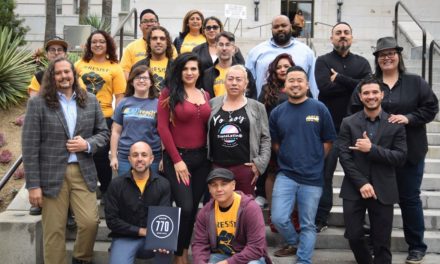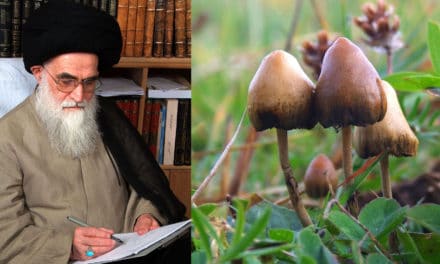Corporate attorney. West Point graduate. Pharmaceutical company representative. Helicopter pilot for the American drug war in Panama. These are not the usual bylines one expects to find in the biography of a man who fights for cannabis legalization and champions the healing power of psychedelic plant medicines, but for Ian Benouis it’s all part of his long, strange trip.
We interviewed Ian recently about a new documentary called Soldiers of the Vine (free to watch here) which chronicles the journey of a group of veterans suffering from PTSD who are invited by Ian to experience a 10-day healing journey in Peru. In addition to that, Ian is involved in another upcoming documentary called From Shock to Awe which addresses the same subject of treating combat-related PTSD with plant medicines and MDMA. In this continuation of our discussion with Ian, we dig into his eclectic past, the power of memes and media in an interconnected world, and what patriotism means to him as an American and global citizen.
Thanks again for speaking with us, Ian. Your life has a lot of fascinating juxtapositions, to say the least. What was it like being an instrument of the U.S. government in the Drug War, and how did your perspectives change over time leading you to plant medicine activism? You are one of the few who has occupied both sides of the same coin at such a level.
When it comes to my own personal purpose or destiny, there are certain signposts that I can’t ignore. I grew up in Hawaii before D.A.R.E. when cannabis was completely decriminalized and part of the culture. You didn’t need a drug trade to have cannabis there- although some would come in, it was mostly homegrown. Then they started operation Green Harvest in Hawaii, which was the first instance of using U.S. military resources for domestic police operations. Some of the same Blackhawks that had been used in Panama when I went down there for Operation Just Cause from ‘87-’90 were used for the drug raids in northern California after being tested out in Hawaii. What we got out of the attempt at cannabis eradication was a meth epidemic. Meth is part of the culture in nearby Japan, and when they clamped down on the cannabis, the meth just took over.
So I went from there to West Point. I was in the army in California and deployed to Panama from 1987 to 1990 for Operation Just Cause. We were down there in Panama to reel in our drug kingpin who basically went rogue (or went off his leash too far), and to then turn around and get out. My first job out of the military was for Pfizer at the height of the pharmaceutical industry and the launch of all these new synthetic opioids, antidepressants and SSRI’s. Everyone thought that they would make a radical impact at the start. Then the reality around those things became apparent: the pharma industry is not really looking for solutions or cures, it’s looking for customers- magazine subscribers, basically. That was disappointing. Then you begin to see how this all comes together: we’re fighting these wars over oil, and the majority of the pharmaceuticals are made from petrochemicals. So they go and have you fight a war, then you come back and they get you hooked into pharmaceuticals, and now you’re a zombie, so you can’t even break out of your prison to deal with your trauma. So we’ve put ourselves in this model of pharmaceutical medicine and surgery to treat ailments, and they do have their place but they don’t work as sustainable medicines. We gotta go to the sustainable ones, the ones that have thousands of years of traditional use and have come out of the earth.
You’ve been inside the machine and now you work outside of the machine. What’s your sense of patriotism and service to your country, and how has it evolved?
Wow, that’s a great question man. First off, I would say that I hopefully feel like I’m working things from the inside. In other words, I was inside of the system and I still have the cred of being able to say that I’m in good standing with my departure from that world. I love my country. I think being patriotic means being honest with yourself and your fellow Americans, and this country is great but of course it has a lot of problems, and we’re not being honest with ourselves about what those problems are.
No matter what your nationality is, you have to be a global citizen because whatever we do affects the whole planet. Our war machine is destroying the natural world. The biggest industrial consumer of oil in the world is the U.S. military. We’re eating way too much meat and clear cutting the forests. It’s not just the war machine, it’s these other machines as well that aren’t sustainable. You can love this country and be in service to it, but the service of going to other places and killing people doesn’t work any more. So that service should be redirected to build the infrastructure for sustainable living. I don’t know what our purpose is as a species, if we are meant to leave the planet, but we sure as hell need to keep our landing pad here in good condition.
Documentaries like the ones you’re involved in are playing a big part in shifting the cultural narrative around plant medicines and the War on Drugs. Are you otherwise involved in drug policy reform? What’s the most effective and efficient way to turn this ship around?
I’m heavily involved on the local level here in Texas and at the national level, because veterans are the face to actuate this political change around the drug war. It’s a lot harder for the politicians to say no to veterans. In the long term, we know we’re going to win. There are now over 20 states with medical cannabis laws and a handful of states with recreational. It’s inevitable. It doesn’t destroy the states, it makes them better, so that’s going to happen long term.
We’ve also got these MDMA studies through MAPS that could see MDMA becoming a legal medicine by 2021. Psilocybin, LSD, and ayahuasca are all moving in that direction as well. Nationally, just in the last month we had a federal bill filed by senator Cory Booker [D-NJ] to deschedule cannabis, and this lawsuit by 11-year-old Alexis Bortell against Jeff Sessions to remove cannabis from scheduling, so that’s all happening… but the big issue now is the culture shift. Getting average people to change their minds and change what’s in their hearts, that’s what’s really going to drive and accelerate these changes even more.
It’s all about media and using these amazing platforms of communication technology to broadcast these messages to bigger audiences. That’s why when the opportunity came to me to do Soldiers of the Vine, I said “I have to do this”, because ultimately the strategy is to probe this out for yourself and other people, and then share that journey in a testimonial sort of way. There is power in being able to put this info out there in a form that is easy to digest and free on the internet- that’s how you win at the tactical level. You use media and all these tools to amplify your message.
It’s that brand new global interconnectivity that gives me every reason to be optimistic. Because if you look at the momentum that we’re dealing with in all the destructive things, its very easy to get overwhelmed and be pessimistic. This gigantic machine is still lurching forward, and the annals of power have all this momentum. But with the internet, we are in a completely new world right now where everything can change instantly, globally.
That’s a great point to keep on reinforcing. When you’re tapped into the viral network, if the information resonates powerfully enough, it will touch as many people as it needs to. The internet is that thing: against fascism, nationalism, and all these other -isms and phobias and whatnot. It’s information that’s available. Nobody has an excuse anymore.
It’s a kind of war in the meme-verse. Psychedelics have the stigma of producing “meaningless hallucinations”, but as the initiated know and as science is revealing, they are the bearers of truth and healing in the deepest sense.
Yeah, let’s transition from the bullet war to the meme war. I’ve been really moved by the responses from the Soldiers of the Vine screenings. I’m like “Wow, I built a field of dreams, and people actually showed up!” People are getting whatever they need out of it, versus our own self criticisms about what could have been better. That’s the real amazing thing about it. Share the message with people, and people will self-organize and self-activate. There’s no cult, there’s no dogma, it’s just spreading the love of healing and then people will naturally do whatever it is they feel they were created to do.
I think ultimately these plant medicines are psychic mirrors: they give the opportunity for greater self-reflection. Used ceremonially together, you get an intensification from all those spheres online together, mirroring each other. We all need to shut up and take our medicine and do our work. My personal belief is that the universe is a superorganism that makes up a mirror for the divine, where the ego is a construct that creates the illusion of separateness so that we have a game to play, and it’s the best game ever.
And that’s our potential salvation, and how our planet is getting hooked up into an electronically supported superorganism platform for communication. I think we’re trying to all connect each other up to heal ourselves, to unify as a planet, and then on to whatever’s supposed to be next. I don’t know what that is any more than the next person, but I have an open heart and open arms and trust that the universe knows what it’s doing.











Ian is a very inspiring guy. He’s very persuasive and such a great voice for the psychedelic community. He also has his finger on the pulse of the legal climate. Thanks for this article!